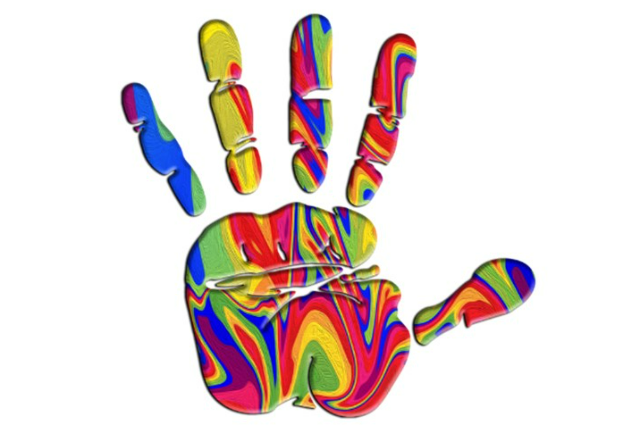
INTRODUCTION:
The world we live in is an intricate tapestry of diverse cultures, religions, and identities, but it is also a place where bigotry and discrimination can run rampant. One group that has been historically marginalized and oppressed is the LGBT community. For centuries, they have faced discrimination, persecution, and violence. But despite the challenges they face, the LGBT community has remained resilient and courageous in their fight for equal rights and recognition.
It is no secret that the struggle for LGBT rights has been a long and arduous one, full of setbacks and victories alike. From the Stonewall riots of 1969 to the recent legalization of same-sex marriage in many countries, the LGBT community has come a long way in its quest for equality. But there is still much work to be done.
In this article, we will explore the challenges that continue to face the community today. We will examine the impact of discrimination and prejudice on LGBT individuals and their communities, and we will discuss the importance of allyship and support in the fight for LGBT rights.
As Salman Rushdie once wrote, "What is freedom of expression? Without the freedom to offend, it ceases to exist."
The LGBT community knows all too well the consequences of being silenced and oppressed. But through their love, courage, and determination, they continue to push forward, paving the way for a more inclusive and just world for all.
LGBT, HOMOPHOBIC BULLYING AND DISCRIMINATION:
LGBT is an acronym that stands for Lesbian, Gay, Bisexual, and Transgender. These terms refer to people whose sexual orientation or gender identity differs from the societal norm of heterosexual, cisgender individuals. Unfortunately, many members of the LGBT community experience discrimination and harassment due to their identity.
Homophobic bullying and discrimination are forms of mistreatment that specifically target members of the LGBT community. This type of behavior can take many forms, including name-calling, physical violence, exclusion from social groups, and cyber bullying. The effects of this bullying and discrimination can be devastating.
The LGBT community has long been subjected to social stigmatization, discrimination, and persecution. The struggles of the LGBT community are often dismissed as unimportant or ignored entirely. This creates an atmosphere of hostility and intolerance that perpetuates homophobic bullying and discrimination.
The effects of homophobic bullying and discrimination are felt acutely by members of the LGBT community. Such behavior can lead to psychological trauma, depression, anxiety, and in extreme cases, even suicide. LGBT individuals who experience bullying and discrimination are also more likely to struggle academically and have lower self-esteem.
As a society, we must recognize the harm that homophobic bullying and discrimination inflict on the LGBT community. We must actively work to combat this type of behavior and create a more accepting and inclusive environment for all individuals, regardless of their sexual orientation or gender identity.
In conclusion, we cannot afford to be passive or complacent when it comes to combating homophobic bullying and discrimination. The price of intolerance is simply too high. We must embrace diversity and promote a culture of acceptance and tolerance in order to create a society that is truly just and equitable for all.
PREVALENCE:
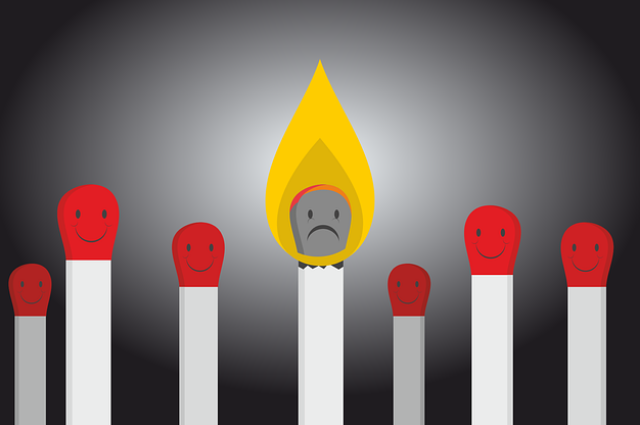
We are free to choose our own identity and that we must take responsibility for the choices we make - Jean-Paul Sartre
The issue of homophobic bullying and discrimination in schools is a growing concern that cannot be ignored. Studies have shown that LGBT students are more likely to experience bullying and harassment than their non-LGBT peers. This fact alone is a testament to the pervasiveness of homophobia in our society and its harmful impact on young people.
It is a tragic reality that LGBT students often face a hostile school environment where they are subjected to verbal and physical abuse, ostracism, and exclusion. They are constantly living in fear of being bullied and ridiculed for their sexual orientation or gender identity. The weight of this burden can have severe consequences on their mental health, academic performance, and overall well-being.
According to a 2017 survey conducted by GLSEN,
- 85% of LGBT students reported experiencing verbal harassment.
- 27% reported physical harassment, and ,
- 11% reported physical assault based on their sexual orientation or gender identity.
This is a stark contrast to the 67% of non-LGBT students who reported experiencing verbal harassment, 10% reported physical harassment, and 4% reported physical assault.
The same survey also found that LGBT students are more likely to skip school because they do not feel safe.
- 59% of LGBT students reported feeling unsafe at school because of their sexual orientation.
- 44% reported feeling unsafe because of their gender expression.
This fear and anxiety can lead to missed classes, lowered grades, and decreased academic performance.
Furthermore, the consequences of homophobic bullying and discrimination can extend beyond the school years. LGBT individuals who experienced bullying and discrimination in their youth are more likely to suffer from depression, anxiety, and substance abuse later in life.
It is our responsibility to create safe and inclusive spaces for all students, regardless of their sexual orientation or gender identity. This requires a shift in attitudes and the implementation of effective anti-bullying policies that protect LGBT students from discrimination and harassment. We must also provide resources and support for LGBT students to help them navigate the challenges they face in school and beyond.
In conclusion, the prevalence of homophobic bullying and discrimination in schools is a serious issue that requires our attention and action. We cannot continue to ignore the suffering of our youth. It is time to break the silence and take a stand against homophobia and discrimination in all its forms. Only then can we create a world where all individuals, regardless of their sexual orientation or gender identity, can live without fear and prejudice.
MENTAL HEALTH:
People should be free to pursue their own happiness as long as they did not harm others- John Stuart Mill
The human spirit is a delicate thing, and it requires care and nurture to thrive. Yet, when homophobic bullying and discrimination become an everyday reality for LGBT students, their very existence is put at risk. It is no secret that such acts can have devastating impacts on mental health, and studies have shown that LGBT students are more likely to experience depression, anxiety, and even suicidal ideation.
The emotional trauma of homophobic bullying can leave a lasting impact on young minds. The constant fear of being targeted can lead to a sense of isolation and shame, and the weight of carrying such a burden can be unbearable. The negative effects can manifest in a variety of ways, including lowered self-esteem, feelings of worthlessness, and a lack of motivation.
Depression and anxiety are common among LGBT students who experience homophobic bullying. Studies have found that such students are three times more likely to suffer from depression than their non-LGBT peers. The constant fear of being targeted can lead to a sense of helplessness and hopelessness, further compounding these issues. Similarly, anxiety disorders can develop as a result of the constant stress and fear of being bullied.
Perhaps most troubling is the correlation between homophobic bullying and suicidal ideation among LGBT students. The National Institutes of Health has reported that LGBT youth are at a higher risk for suicide than their non-LGBT peers, and this risk is exacerbated by bullying and harassment. The trauma inflicted by such acts can be too much to bear, and for some, suicide may seem like the only way out.
It is clear that homophobic bullying and discrimination can have severe impacts on the mental health of LGBT students. The pain and suffering inflicted upon them can be overwhelming, and the risk of lifelong damage is all too real.
We must work to create safe and accepting spaces for all students Only then can we begin to heal the wounds inflicted by such cruelty and protect the delicate human spirit.
ACADEMIC PERFORMANCE:

The impact of homophobic bullying and discrimination on the academic performance of LGBT students is a harsh reality that cannot be ignored. Such students may face difficulties in achieving academic success due to the fear of harassment, which often leads to absenteeism from school.
Studies have shown that LGBT students are more likely to miss school due to the fear of harassment, bullying, and discrimination from their peers and teachers. Such absences can significantly impact their academic performance as they may miss out on important lessons, assignments, and exams. This can cause them to fall behind in their studies and struggle to catch up, which can be demotivating and frustrating.
In addition, homophobic bullying and discrimination can negatively impact the mental health of LGBT students, which further impacts their academic performance. Constant fear of harassment and discrimination can lead to anxiety, depression, and other mental health issues, which can make it difficult for students to concentrate on their studies and perform to the best of their ability.
The negative impact of homophobic bullying and discrimination on academic performance is not limited to absenteeism and mental health issues alone. LGBT students may also face discriminatory behavior from their teachers, such as being graded unfairly, or receiving inadequate support and attention. This can create a hostile environment for them, which can negatively affect their academic performance and overall well-being.
It is crucial that schools and communities work together to address the issue of homophobic bullying and discrimination in order to ensure a safe and inclusive environment for all students. This can include implementing anti-bullying policies, providing support systems for LGBT students, and promoting awareness and education on LGBT issues. Only then can we ensure that LGBT students can achieve academic success without fear of harassment, bullying, and discrimination.
In conclusion, the impact of homophobic bullying and discrimination on the academic performance of LGBT students is a serious issue that demands our attention. It is our responsibility to create a safe and inclusive environment for all students, regardless of their sexual orientation or gender identity. Only then can we ensure that all students have an equal opportunity to achieve academic success and fulfill their potential.
SCHOOL POLICIES:
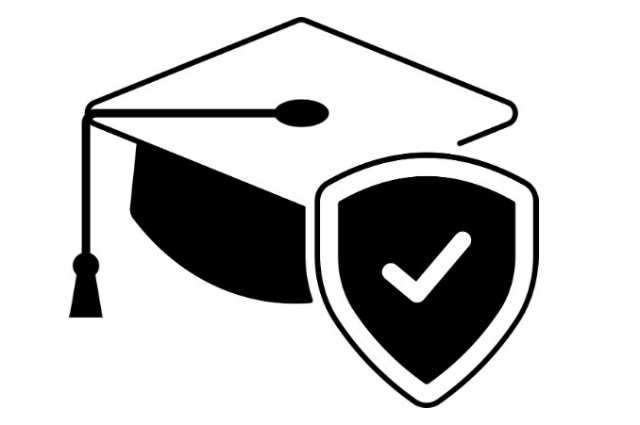
Image reference: Azam Ishaq from Pixabay
As I consider the effectiveness of school policies in addressing homophobic bullying and discrimination, I am reminded of the complexities and contradictions that exist within our educational systems. While some schools may have implemented policies aimed at preventing bullying, these policies may not be enough to address the unique challenges faced by LGBT students. In fact, many such policies may fall short of their intended goals and fail to provide adequate protection for the most vulnerable members of our school communities.
This failure is not a result of a lack of good intentions on the part of educators and policymakers. Rather, it is a reflection of the deeply entrenched prejudices and biases that continue to pervade our society and our institutions. Homophobic attitudes are still prevalent in many communities, and they can manifest in subtle and insidious ways that are difficult to detect and address.
Furthermore, the very structure of our educational systems can work against the interests of LGBT students. Schools are often hierarchical and competitive environments, and students who are perceived as different or deviant in some way may be ostracized and bullied by their peers. In such an environment, policies that are meant to promote inclusivity and acceptance may be undermined by a broader culture of hostility and exclusion.
Nevertheless, there are reasons for hope. Some schools have taken proactive measures to create safe and supportive environments for LGBT students. These measures may include providing training for teachers and staff on how to recognize and respond to homophobic bullying, establishing support groups for LGBT students, and implementing policies that explicitly prohibit discrimination on the basis of sexual orientation or gender identity.
Such measures are not a panacea, of course, and they may face opposition from those who are resistant to change. Nevertheless, they represent a step in the right direction, and they offer a glimmer of hope for a future in which all students can feel safe and valued in our schools. It is up to us, as educators, policymakers, and concerned citizens, to continue the fight for equality and to build a more just and inclusive society for all.
SUPPORT SYSTEM:
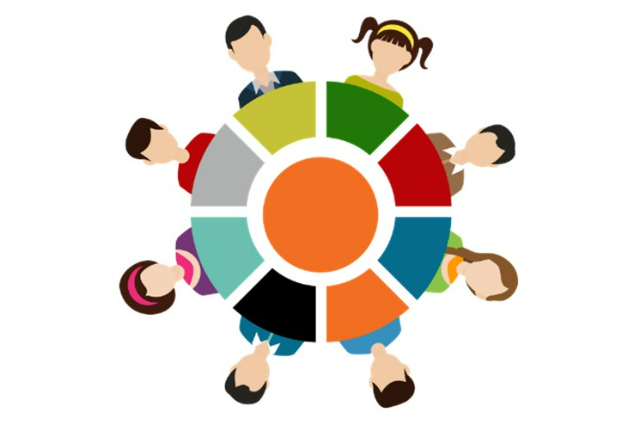
Image reference: Harish Sharma from Pixabay
The way we think about sexuality is shaped by historical and cultural factors - Michel Foucault
The importance of support systems for LGBT students cannot be overstated. Supportive teachers, counselors, and LGBT student organizations can have a profound positive impact on the mental health and academic success of LGBT students. In a world that can often be hostile to their identities, LGBT students need allies and advocates who can provide them with a safe and welcoming environment in which they can thrive.
Supportive teachers can play a critical role in creating such an environment. They can serve as mentors and role models for LGBT students, helping them to feel valued and respected. By creating a classroom atmosphere that is free from discrimination and prejudice, these teachers can foster a sense of belonging and inclusion among their students. In turn, this can lead to better academic performance and a more positive overall school experience.
Counselors are another important support system for LGBT students. They can provide a listening ear and a safe space for students to express their feelings and concerns. They can also offer guidance and support to help students navigate the challenges that they may face as a result of their sexual orientation or gender identity. Counselors can help students to build resilience and coping skills, which can help them to better manage stress and overcome adversity.
LGBT student organizations are also an invaluable support system for LGBT students. These organizations provide a space for students to connect with others who share similar experiences and challenges. They can offer social support, advocacy, and education on LGBT issues. Being part of an LGBT student organization can help students to build a sense of community and empowerment, which can be transformative in terms of their mental health and academic success.
In conclusion, support systems for LGBT students are essential for their mental health and academic success. Supportive teachers, counselors, and LGBT student organizations can help to create a safe and welcoming environment in which LGBT students can thrive. It is up to all of us to work together to create a world that is more accepting and inclusive of all people, regardless of their sexual orientation or gender identity.
CALL FOR ACTION:
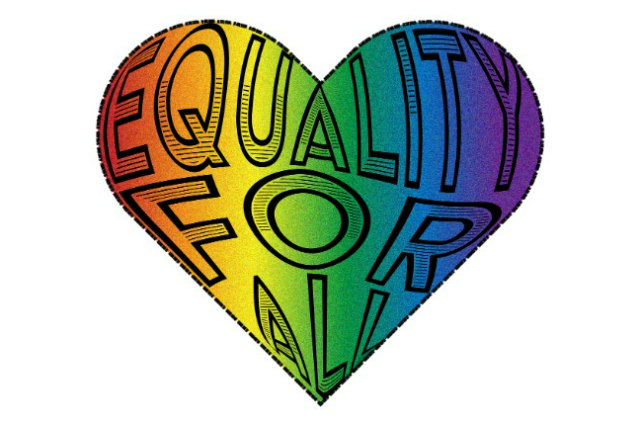
Image reference: Katherine Gomez from Pixabay
Addressing homophobic bullying and discrimination in schools is not just a matter of moral duty, but it is also crucial for the well-being and success of all students, including those who identify as LGBT. As a society, we must acknowledge the gravity of this issue and take steps to make our schools safe and welcoming places for all students.
Advocating for stronger anti-bullying policies, promoting awareness and education on LGBT issues, and providing support for LGBT students and their allies are all critical steps towards creating an environment that values diversity and inclusivity. Schools must work towards creating a culture that celebrates the differences in their students and ensures that all students are treated with respect and dignity.
Moreover, educating teachers and administrators on how to support and advocate for LGBT students is essential in reducing bullying and discrimination. This may involve creating a safe space for LGBT students to share their stories and experiences or providing mental health resources to ensure that students have access to appropriate support.
Finally, it is important to remember that while progress has been made in recent years, the fight for equality is ongoing, and we must continue to push for change. We owe it to future generations to create a world where everyone can live without fear of being discriminated against because of their sexual orientation or gender identity.
CONCLUSION
As a society, we must recognize the harmful impacts of homophobia and discrimination against the LGBT community and take steps to address this issue. LGBT individuals face significant challenges, particularly in schools where homophobic bullying and discrimination can have long-lasting effects on their mental health and well-being.
It is our collective responsibility to promote awareness and education on LGBT issues and advocate for stronger anti-bullying policies that create a safe and welcoming environment for all students. We must also provide support for LGBT students and their allies, creating spaces where they feel valued and accepted.
However, these changes cannot happen without the commitment of individuals and institutions to stand up against homophobia and discrimination. It is crucial that we continue to fight for equality and work towards a world where everyone can live without fear of being discriminated against because of their sexual orientation or gender identity.
In the words of Salman Rushdie, "We owe it to ourselves, and to future generations, to create a society where all individuals are free to express their true selves without fear of persecution or violence."
It is only through our collective effort that we can create a more just and inclusive world for all.
